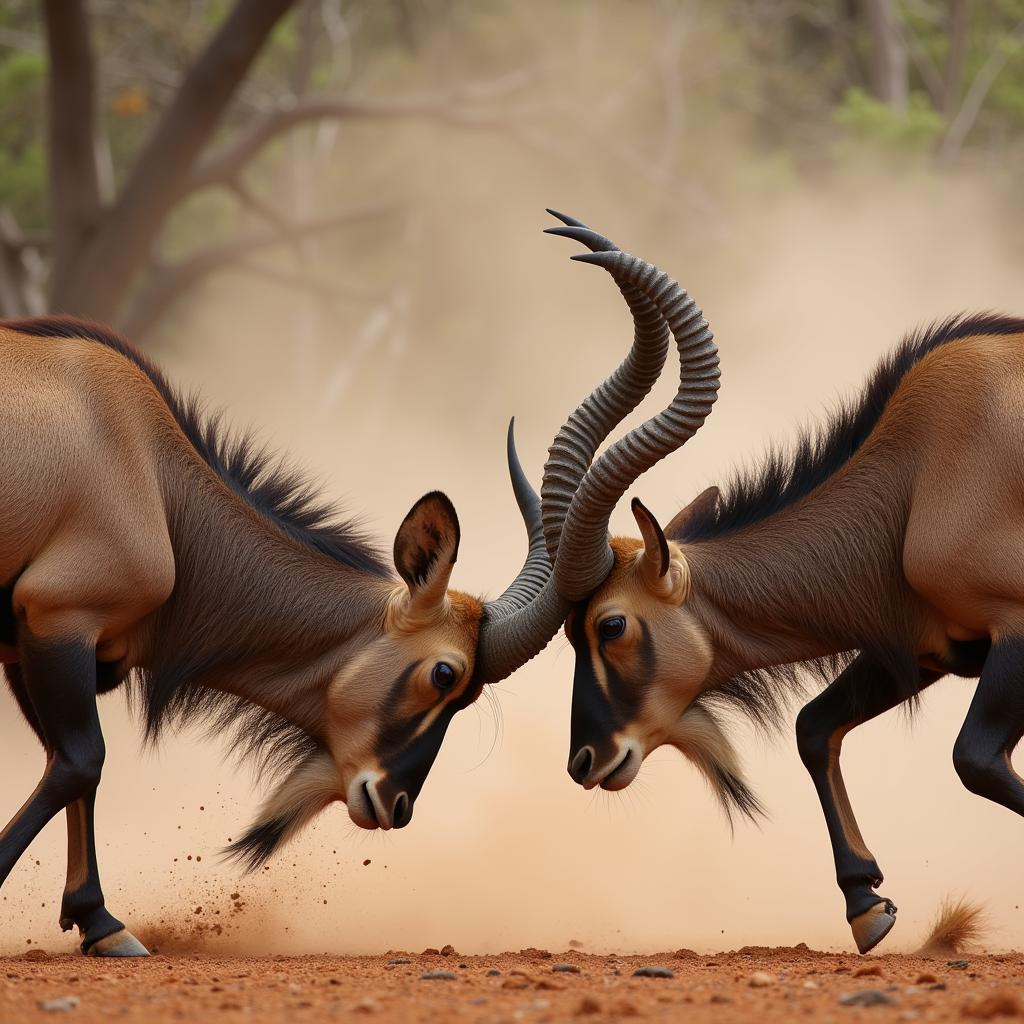African Hides for Sale: A Guide to Sourcing and Understanding Ethical Considerations
African Hides For Sale offer a unique connection to the continent’s rich cultural heritage and diverse wildlife. Whether you’re seeking materials for crafting, fashion design, or interior decor, understanding the sourcing and ethical considerations surrounding African hides is essential for making informed and responsible purchases.
Navigating the market for African hides can be complex. This guide will delve into the various types of hides available, exploring their unique characteristics, traditional uses, and contemporary applications. We will also discuss the importance of sustainable sourcing and ethical considerations, ensuring your purchase supports conservation efforts and fair trade practices. Check out some of the popular African clothing styles if you’re looking for inspiration.
Exploring the Diversity of African Hides
Africa boasts an incredible array of wildlife, each species yielding hides with distinct qualities. From the robust hides of cattle and game animals to the luxurious skins of crocodiles and snakes, the options are vast and varied. Understanding these differences is crucial for selecting the right hide for your specific needs. For example, cowhide is known for its durability and is often used in rugs and upholstery, while softer hides like goatskin are preferred for clothing and accessories. Traditional uses for these hides often reflect the cultural significance of the animals in different African communities.
Ethical Sourcing of African Hides: A Critical Concern
The trade in African hides can have significant environmental and social impacts. Ensuring the hides you purchase are sourced ethically is paramount for supporting sustainable practices and preserving Africa’s biodiversity. Look for suppliers who prioritize conservation efforts, fair trade principles, and the humane treatment of animals. Understanding where your African hides come from and how they are processed enables you to make responsible choices that benefit both the environment and local communities. Learn about the history of African furniture, often incorporating these natural materials.
The growing demand for exotic skins has unfortunately led to illegal poaching and unsustainable hunting practices, threatening several endangered species. By choosing hides from reputable sources that adhere to strict regulations and conservation guidelines, you can contribute to protecting these vulnerable populations.
Where to Find African Hides for Sale
Finding authentic and ethically sourced African hides for sale requires careful research. Online marketplaces, specialized retailers, and direct sourcing from African communities are some potential avenues. However, thorough due diligence is essential to ensure the legitimacy and sustainability of the source. This includes verifying the seller’s credentials, understanding their sourcing practices, and checking for certifications that guarantee ethical and sustainable production.
“Transparency is key when purchasing African hides,” explains Dr. Anika Nkosi, a wildlife conservationist based in Kenya. “Consumers should ask questions about the origin of the hides, the tanning methods used, and the impact on local communities.”
Caring for Your African Hides
Proper care and maintenance are crucial for preserving the beauty and longevity of your African hides. Different types of hides require specific cleaning and conditioning methods. Understanding these requirements will help prevent damage and ensure your investment lasts for generations. For example, regular dusting and occasional professional cleaning are often recommended for larger hides used as rugs.
African Hides for Sale: A Timeless Investment
African hides for sale represent not only beautiful and functional materials but also a connection to Africa’s rich natural and cultural heritage. By prioritizing ethical sourcing and sustainable practices, we can ensure the preservation of this heritage for generations to come. The African donkey, a vital part of many communities, also contributes to the hide trade. Looking for dance attire? Check out African dance costumes for sale. If you’re a reptile enthusiast, an African fat-tailed gecko setup might be of interest.
Conclusion
African hides for sale offer a unique way to incorporate a touch of African heritage into your life. By understanding the ethical considerations and sourcing practices, you can make informed decisions that support sustainable development and conservation efforts. Remember to prioritize reputable suppliers who prioritize transparency and responsible sourcing when searching for African hides for sale.
FAQ
- What are the most common types of African hides available for sale? Cowhide, goatskin, sheepskin, and game hides are among the most common.
- How can I tell if an African hide is ethically sourced? Look for certifications, ask the seller about their sourcing practices, and research the supplier.
- What are the traditional uses of African hides? Traditional uses range from clothing and bedding to ceremonial objects and shields.
- How do I care for my African hide? Specific care instructions depend on the type of hide, but general guidelines include regular dusting and occasional conditioning.
- Where can I find reputable sellers of African hides? Online marketplaces, specialized retailers, and direct sourcing from African communities are potential avenues.
- Are African hides expensive? The price varies depending on the type of hide, size, and sourcing method.
- What are the benefits of buying ethically sourced African hides? You support sustainable practices, fair trade, and the preservation of African wildlife.
Possible Scenarios for Questions about African Hides for Sale
- A designer looking for specific types of hide for a new collection. They may ask about availability, pricing, and ethical sourcing certifications.
- A homeowner wanting a unique rug or wall hanging. They might be interested in the durability, care instructions, and origin of the hides.
- A craftsperson seeking small pieces of hide for jewelry or accessories. They may inquire about different textures, colors, and sourcing options.
Further Reading
For more information about African culture and traditions, you can explore other articles on this website, such as those on African furniture history.
Need Help?
For any questions or assistance regarding African hides, please don’t hesitate to contact us.
Phone Number: +255768904061
Email: kaka.mag@gmail.com
Address: Mbarali DC Mawindi, Kangaga, Tanzania.
We have a 24/7 customer service team ready to assist you.
